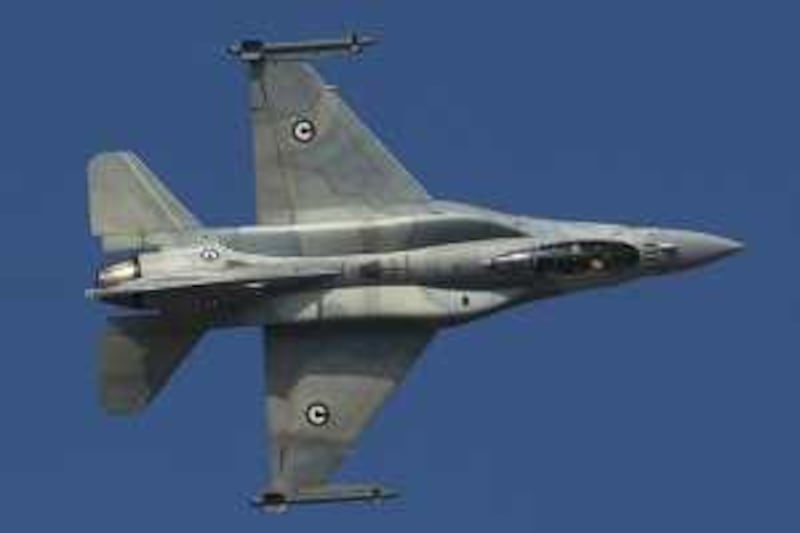ABU DHABI // The UAE is near the top of a list of the world's biggest weapons importers and is set to continue increasing its hi-tech defensive capabilities, according to a new report on international arms transfers. Analysts say the purchase of the weapons systems sends a message that the country is capable of protecting its territorial integrity while confirming that its posture is defensive.
The report, by the Stockholm International Peace Research Institute (Sipri), which for 44 years has tracked armaments and military spending, ranked the UAE in fourth place worldwide in total arms between 2005 to 2009, with spending of US$6.5 billion (Dh23.9bn). Only China, India and South Korea spent more. The UAE was ahead of Israel, in sixth place. The nearest Arab country was Egypt, in 15th place, with $2.5 billion in imports.
The United States is by far the biggest supplier of arms to the UAE, the third-largest US weapons client. The UAE is also France's biggest arms export destination. The majority of the UAE's spending is on aircraft from the US and France, followed by missiles and air defence systems. From 2005 to 2009, the UAE received deliveries of 34 Mirage 2000 combat aircraft from France and 72 F-16 fighters from the US.
The UAE is poised to strengthen its position as a top importer with the delivery of Patriot-3 surface to air missile systems as well as transport aircraft and other missile-defence systems from the US, France and Russia. However, the report shows a decline in UAE military imports for four consecutive years. "The important issue to stress is the fact that UAE has significantly increased its military arsenal in both technical quality and quantity," said Pieter Wezeman, a senior researcher at Sipri's arms transfers programme and an author of the report.
"The decline in the imports since 2006 cannot be seen as an indication that the UAE is toning down its efforts to build up advanced armed forces with a considerable reach." While the UAE had been absorbing the advanced weaponry it had already bought, such as by training military personnel and deployment, it was negotiating "new major arms procurement projects", said Mr Wezeman. The weapons systems purchased by the UAE were primarily defensive, but the country was capable of long-range precision strikes, which acted as a deterrent to regional rivals, he said.
A report by Sipri last April showed that the UAE was the world's third-biggest importer of arms, from 2004 to 2008, accounting for six per cent of all purchases. Paul Burke, a security and intelligence expert based in Abu Dhabi, said the country "sends a message - we have a capability in place that makes it difficult to invade and take control of any islands". Another reason for the build-up was to supplement the UAE's role in international operations.
"The UAE is one of the most active GCC countries in terms of participation in international operations," said Justin Crump, an security expert based in London. "For example, troops and planes are currently deployed in Afghanistan, and the Emirates' Special Forces have won plaudits for their role in tackling foreign fighters there. This is why transport planes are an essential purchase." US military support for the GCC was intended mainly as a way to contain Iran, Mr Wezeman said. "The question here is to what extent Iran, which has not bought so many advanced conventional weapons in the past 10 years, is at a disadvantage," he said.
Despite Iran's public condemnation of US arms sales to GCC countries, Mr Burke believed that the Iranian government had bigger concerns. They included its nuclear programme and hostile borders with Afghanistan and Iraq. "I don't think Iran will see GCC arms purchases as a threat. No matter what they say in public, the Iranian government privately knows that the GCC countries would not attack them," he said.
kshaheen@thenational.ae In an article headlined "Arms purchases 'send a message'" (March 21, on page A6) we stated that the UAE was ranked fourth place worldwide in arms imports in 2009. In fact, the UAE was ranked fourth place worldwide in total arms imports between 2005 and 2009.







